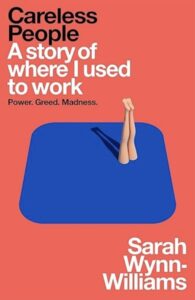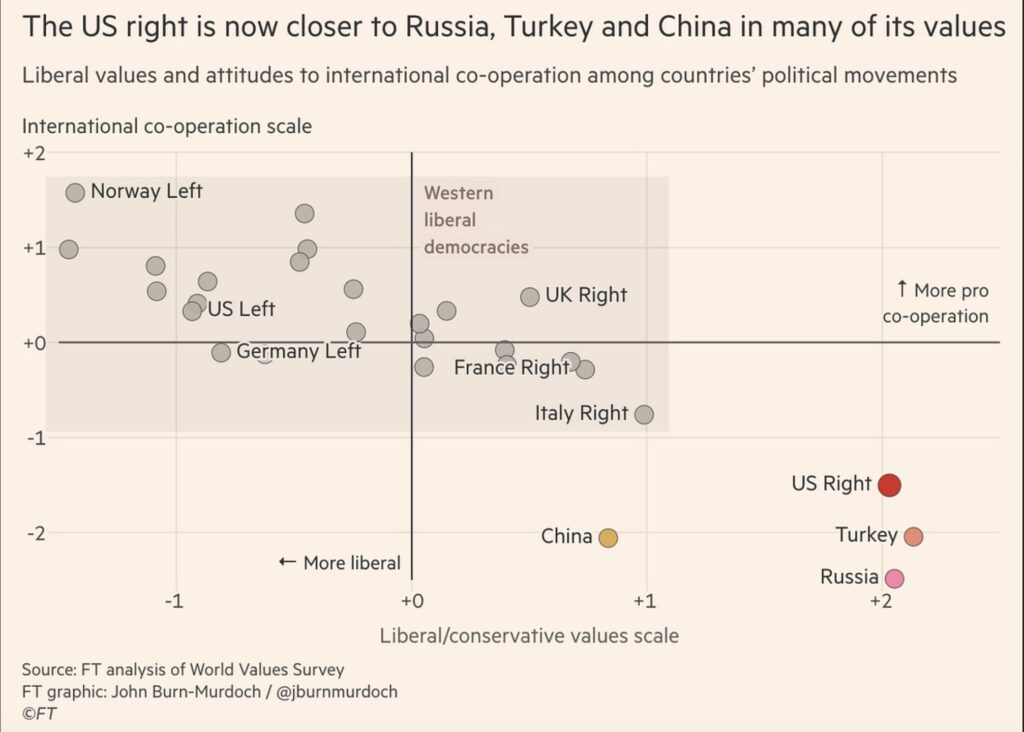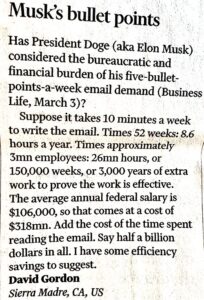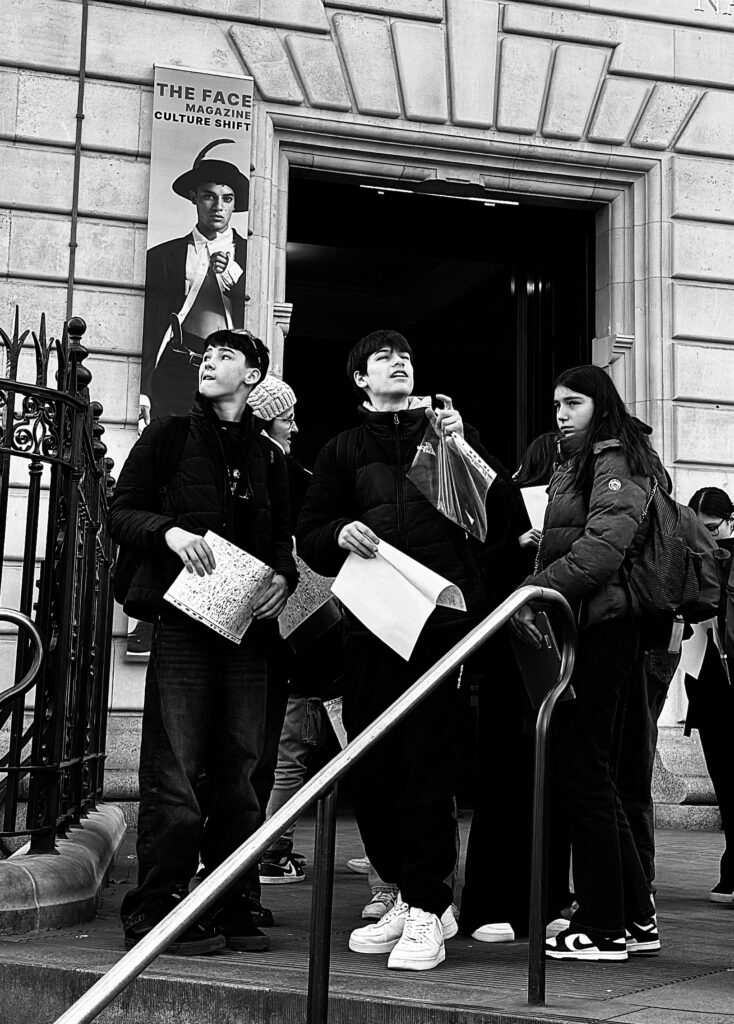Inhumanity in numbers
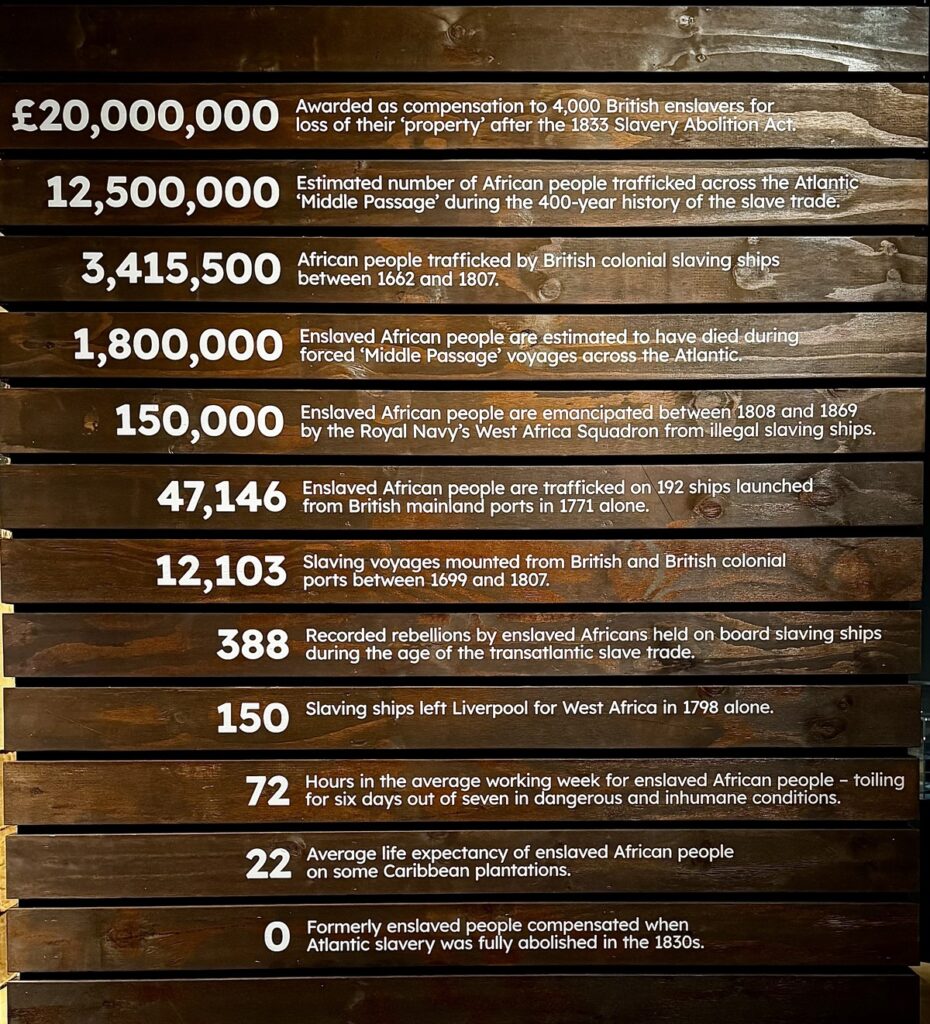
This striking table greets one at the entrance to the Fitzwilliam Museum’s Rise Up exhibition which explores the battle to abolish the British slave trade and end enslavement between 1750 and 1850, as well as the aftermath, its legacies and the ongoing struggle for equality and social justice today. It’s a brilliantly curated and sobering exhibition which we went to on Saturday. I need to go back for a second look, because it needs time for thought and reflection. And it powerfully reinforces my scepticism about the idea of ‘European Civilisation’.
Fittingly, before you enter the show, the museum has a prominent notice which admits that the wealth of the man whose bequest of his library, art collection and £100,000 enabled its founding in 1816 — Richard FitzWilliam, the seventh Viscount FitzWilliam — probably derived from one of his ancestors, who had been a slave-owner. This interesting fact, however, doesn’t seem to be mentioned on the institution’s Wikipedia page.
Quote of the Day
“Problems are like toilet paper. You pull on one and ten more come.”
- Woody Allen*
Musical alternative to the morning’s radio news
Mendelssohn | Songs Without Words | No. 1 In E Major, Op. 19: Andante Con Moto | Daniel Gortler
Leaves one speechless.
Long Read of the Day
A curious tendency among Western philosophers?
Intriguing essay on the wonderful Crooked Timber blog by Doug Muir.
Here are two groups of Western philosophers. We’ll call them Group A and Group B. Here’s Group A:
Plato, Epicurus, Plotinus, Aquinas, Duns Scotus, Francis Bacon, Hobbes, Locke, Spinoza, Newton, Leibniz, David Hume, Herbert Spencer, John Stuart Mill, Schopenhauer, Kant, Kierkegaard, Nietzsche, Wittgenstein, Jean-Paul Sartre, Kurt Gödel, Karl Popper, Jeremy Bentham, Alan Turing, Saul Kripke.
And here’s Group B:
Aristotle, Socrates, Descartes, Bishop George Berkeley, Rousseau, Heidegger, Hegel, Marx, Frege, Bertrand Russell, John Dewey, Albert Camus, Frantz Fanon, John Rawls, Willard Quine.
Okay, so: what distinguishes these two groups?
Read on to find out. I failed the test.
Did AI mania rush Apple into making a rare misstep with Siri?
Yesterday’s Observer column was about Apple’s announcement that the promised ‘AI’-enhanced to its Siri personal assistant tool would be significantly delayed. I was alerted to this by John Gruber’s wonderful Daring Fireball blog, and my column ended thus:
For Gruber, who knows more about Apple than anyone I know, this was like a red rag to a bull. The announcement meant, he wrote, that “what Apple showed regarding the upcoming ‘personalized Siri’ at WWDC was not a demo. It was a concept video. Concept videos are bullshit, and a sign of a company in disarray, if not crisis”. And because he has a long memory, it reminded him that the last time Apple had screened a concept video – the so-called “Knowledge Navigator” video – it was heading for bankruptcy. And it never made anything like it again once Steve Jobs had returned to turn it into the most profitable company in history.
Until – says Gruber – now.
Is he overreacting? Answer: yes. Apple isn’t in crisis, but this mini-fiasco with Siri and Apple Intelligence looks like the first serious misstep in Tim Cook’s stewardship of the company. If there’s one thing Jobs’ Apple was famous for, it was not announcing products before they were ready to ship. It’s clear that the company grossly underestimated the amount of work needed to deliver on what it promised for Siri last June. If it had stuck to the Jobs playbook, the time to have launched the enhancement would have been June 2025 at the earliest. The company had clearly forgotten Hofstadter’s Law: Everything takes longer than you expect, even when you take into account Hofstadter’s Law.
Do read the whole thing.
Later. A reader emailed me suggesting that there was one significant moment when Steve Jobs presented a device that worked in demo mode but wasn’t actually anywhere near ready for sale — the first iPhone. The story is told in a 2013 New York Times article
My commonplace booklet

I came on this old postcard in a book the other day and it triggered a whole stream of memories.
We have been going to Provence every Summer (except for a two-year Covid break) since 2003. When the kids were young we used to fly to Toulon and rent a car, but as they grew up my wife and I realised that we were now free to drive down, and thereby discovered one of the nicest road movies there is — a leisurely (three-day) drive through rural France, avoiding motorways and staying in small hotels and chambres d’hote. The first day of the journey takes us from Calais to northern Burgundy. The second to central France, near Thiers. And the final day takes us to Arles, which is still one of the wonders of the world (and a delight if you happen to be a photographer).
The first year we did this trip, we stumbled on a lovely hilltop Bastide near Thiers as a Day Two stopover. It had the improbable name of Le Sapin Bleu and had been beautifully restored by pair of ex-pat Brits. It was one of the loveliest houses I’ve every been in, and over the years our hosts became friends, to the point that sometimes they would ask us to bring stuff that ex-pats love but are unobtainable in rural France.
And then Covid struck and they decided that the game was up, even for a lovely rural B&B, so they sold up and left to seek their fortunes (and maybe also their widely dispersed families) elsewhere. Even though we eventually found a nice alternative on the outskirts of Thiers, we still feel a pang when driving past the sign to the road that leads uphill to it.
Feedback

My pic of the learned sign forbidding that attachment of bikes to railings sparked some lovely emails, for which many thanks. But Euan Williamson’s response, summarising the Scottish approach to such prohibitions, rally takes the biscuit!
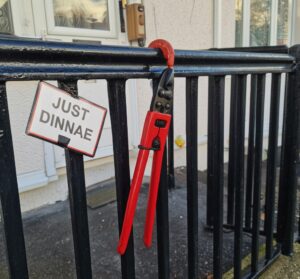
This Blog is also available as an email three days a week. If you think that might suit you better, why not subscribe? One email on Mondays, Wednesdays and Fridays delivered to your inbox at 5am UK time. It’s free, and you can always unsubscribe if you conclude your inbox is full enough already!









